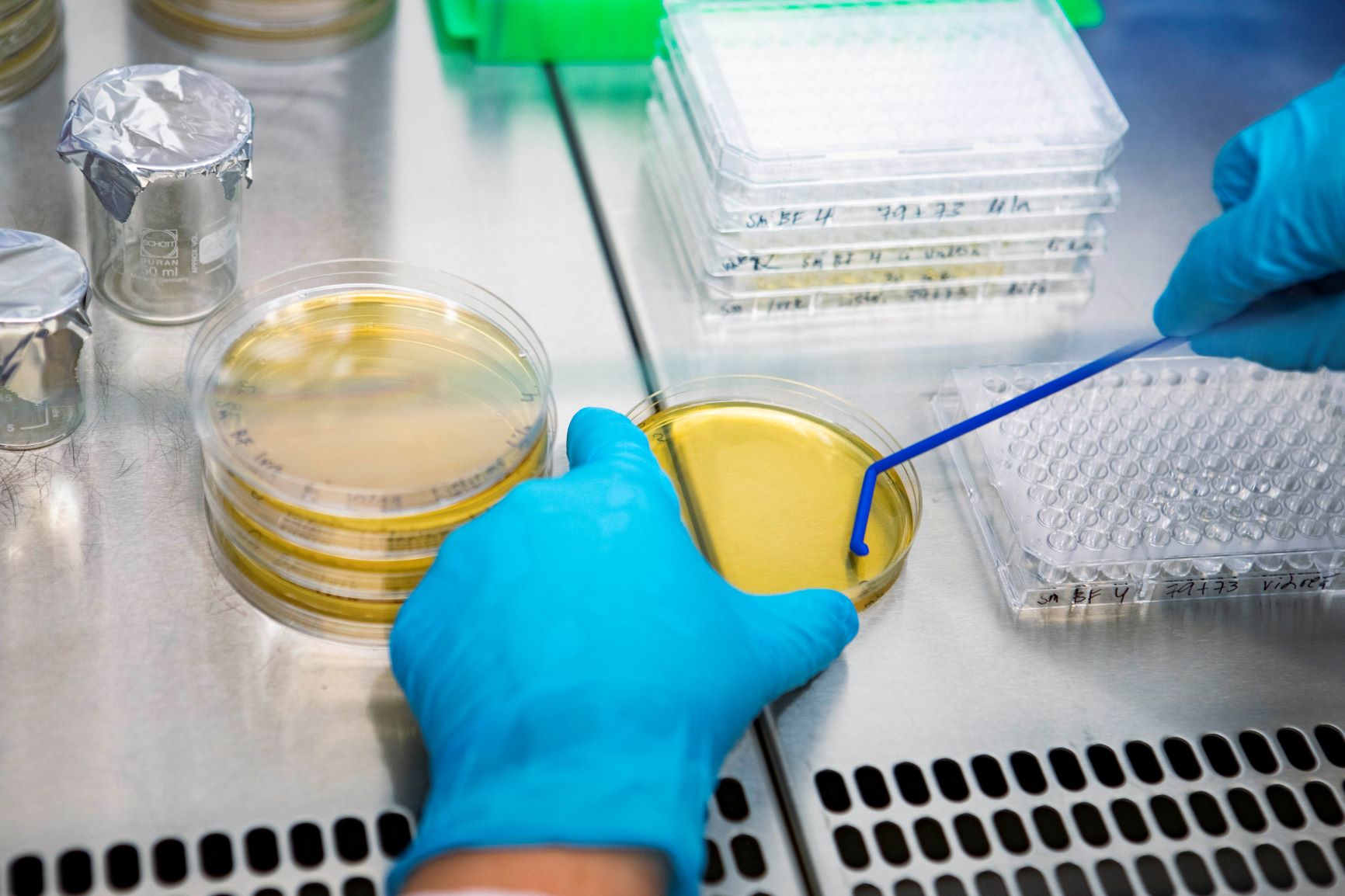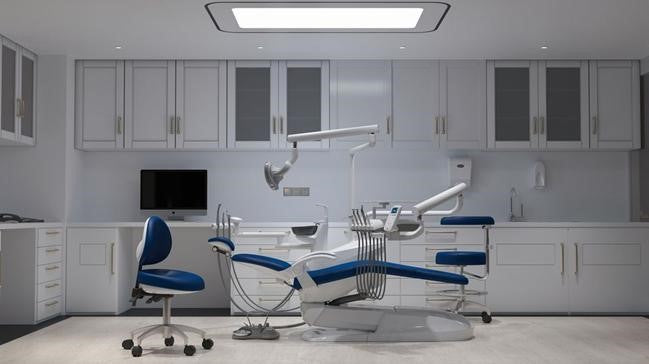Research shows a direct link between oral health and sports performance. Thus, Annimari Korte, a Finnish Olympic athlete, finds it disappointing that sports bodies such as her home country’s Olympic Committee do not support the oral health of competitive athletes like they support general health by paying for medical and physiotherapy services. Even though good oral health is known to improve sports performance and results.
– Throughout the years I have represented Finland as a competitive athlete, there has been no official talk about the importance of oral health in top performances, says Annimari Korte, a top-performing hurdler.
Annimari believes insufficient information is the most significant reason official sporting organisations do not support their athletes' oral health more visibly.
– I hope this situation will change. Studies have shown that oral problems such as gingivitis and periodontitis have been shown to reduce performance significantly, says Annimari.
Top sport is a risk factor for oral health
Research indicates that elite sport is one of the most significant risk factors for the onset of oral diseases. According to one study, caries is found in up to 70% of competitive athletes, dental erosion in almost 40% and severe gum disease, periodontitis, in up to 15% of top athletes1.
Furthermore, studies show that the oral health of athletes appears to be poor in a wide range of sports. Various underlying medical conditions can hamper training results and impair sporting performance; oral infectious disease is no exception.
Concerns about the oral health of athletes are nothing new. For example, during the 2004 Athens Olympics, the second most requested health service for athletes after physiotherapy services was dental care2. Meanwhile, at the 2012 London Olympics, it was noted that Olympic athletes had poor oral health. Up to 55% of athletes had high caries levels, 76% had gingivitis, and 14% had periodontal disease3.
One study examined the oral health of top Dutch athletes before the Rio 2016 Olympics. This study found that almost 50% of top athletes needed regular dental care and suggested that oral health screening, included in the overall preventive healthcare of elite athletes, is essential to ensure that athletes are fully healthy during competitions such as the Olympic and Paralympic Games4.
Dental Reasearch notes that oral health is not part of most sport and exercise or nutrition curricula or integrated within athlete health strategies. Consequently, the importance of good oral health is not fully understood despite the clear link between good oral health and athlete performance.
Inflammatory oral diseases such as gingivitis and periodontitis are common in top athletes. Oral diseases such as gingivitis and periodontitis have been reported to harm the performance of athletes. One reason is the pain and discomfort associated with oral diseases, making concentrating difficult and hampering training results. Links have been reported between muscle injuries and poor oral health in athletes.
There are many possible reasons for the high prevalence of inflammatory oral diseases in competitive athletes. Physical strain is one of the most important. Heavy training increases the body's stress levels, which directly affect oral health and susceptibility to the onset of various gum diseases. Physical exertion affects the composition of saliva during exercise and reduces its secretion5. Frequent oral breathing during exercise and dehydration further contribute to dry mouth. All these factors predispose to tooth decay and enamel erosion and contribute to the onset of inflammatory oral diseases.
Saliva secretion has a variety of effects on dental health. Saliva prevents decay by restoring the pH of the oral cavity from acidic to neutral after eating and by helping to restore minerals dissolved by acids to the tooth surface. Saliva also removes 2-4 grams of microbes daily from the mouth and tooth surface to the digestive tract.
Dietary choices also have a significant impact on the oral health of athletes. Rigorous training programmes require regular eating, supplemented by 'sports nutrition' such as carbohydrate gels and bars consumed during training. This strains oral health by increasing the number of daily acid attacks in the mouth.

A healthy mouth is an integral part of overall well-being
Annimari Korte held the Finnish record in the 100m hurdles 2019-2023. She has also represented Finland several times in world championships. However, she has not had an easy career, as a bout of illness forced her to take a five-year break from competition in 2012. However, the health challenges taught Annimari the importance of overall well-being, including good oral health.
According to Annimari, the Finnish Olympic Committee covers as part of its comprehensive health package visits to a doctor and physiotherapist, but not, for example, visits to a dentist or oral hygienist.
– Regular oral health professional visits would help detect oral health problems early. For example, severe and often asymptomatic periodontitis can be very detrimental to an athlete's overall health and well-being, says Korte.
– At least primary dental care should be covered for competitive athletes, as it affects their overall health and sporting performance.
Juuso Simpanen, a trail runner turned professional, echoes Korte's views on the importance of oral health for athletes aiming for the top.
– Only a fully healthy athlete can achieve top results. If your mouth is not in good shape, it will also hurt your results, says Simpanen.
As an endurance athlete, Simpanen says he eats very often to meet the high-energy demands of training.
– Consuming high amounts of energy exposes my teeth to constant acid attacks. That's why I pay special attention to my oral health. I brush my teeth morning and evening, floss and use antibacterial photodynamic Lumoral-treatment regularly, says Simpanen.
In Simpanen's opinion, support for professional athletes to maintain their oral health would be very welcome.
– At least annual dental check-ups at the dentist would be worthwhile, and why not guide athletes in using new, scientifically proven, effective dental methods? This would prevent many infections in the mouths of top athletes. This would also reduce inflammation, injuries and illnesses in athletes.

– Only a fully healthy athlete can achieve top results. If your mouth is not in good shape, it will also hurt your results, says Juuso Simpanen.
Gingivitis is a severe inflammatory disease
Athletes must get their bodies in the best possible condition to reach the top. Extensive research shows that dental and oral bacteria are linked to many chronic diseases of the body. In addition to heart disease, oral diseases are linked to lung disease, diabetes and metabolic problems in healthy people.
Periodontal disease is a long-standing inflammation of the gums. Over time, the inflammation damages the attachment tissue of the teeth, causing the collagen fibres that hold the teeth to the jawbone to break and, in the worst case, lead to tooth loss. Early signs of periodontal disease include reddened and swollen gums, bleeding of gums and bad breath.
Inflammation of the gums causes low-grade inflammation in the body, which is linked to vascular health and the performance of athletes. Oral bacteria lingering on tooth surfaces and gum pockets are spread throughout the body when teeth are brushed and food is chewed. Even asymptomatic oral conditions can affect the health of the whole body.
– Statistics show that people with a healthy mouth live longer. Each missing tooth reduces life expectancy. This is far too little talked about, says Tommi Pätilä, a specialist in cardiac and organ transplant surgery at HUS New Children's Hospital. He is one of the developers of the antibacterial Lumoral method.
According to Pätilä, it is estimated that up to two out of three people over the age of 30 suffer from periodontitis. This common gum disease can lead to tooth loss if left untreated - but it is also linked to severe heart events. According to a study, a first heart attack is 30% more common in people with periodontal disease than in healthy people of the same age6.
Effective oral hygiene prevents oral disease
According to Simpanen, there is minimal discussion among athletes and sports managers about the risk factors for oral health in elite sports. However, there is good reason to do so.
– During long training sessions and intense competitions, drinking sports drinks and eating energy gels puts teeth and gums under strain. Scientific studies also show this, Simpanen admits.
At his worst, Juuso says that in a 20-hour race, he eats or drinks something sugary every 15-20 minutes throughout the race.
– In addition, almost every week, I do one long training session of 4-8 hours, where I also practice taking energy and sports drinks like in the race.
Juuso says he takes oral health seriously. He takes care of his teeth by brushing twice daily and regularly cleaning his interdental spaces, as specialists recommended. For the last eight months, he has also regularly used a new oral care device based on antibacterial photodynamic therapy7.
– It is crucial for endurance athletes to take care of their oral health outside training and competition, as sports drinks and energy gels are consumed heavily during competition and long training sessions.
References:
- Merle CL, Wuestenfeld JC, Fenkse F, Wolfarth B, Haak R, Schmalz G, Ziebolz D. The Significance of Oral Inflammation in Elite Sports: A Narrative Review. Sports Med Int Open. 2022 Dec 25;6(2):E69-E79. doi: 10.1055/a-1964-8538. PMID: 36643596; PMCID: PMC9839431.
- Vougiouklakis, G. et al. Dental data of the Athens 2004 Olympic and Paralympic Games. Int. J. Sports Med. 29, 927–933 (2008).
- Opazo-García, C., Moya-Salazar, J., Chicoma-Flores, K. et al. Oral health problems in high-performance athletes at 2019 Pan American Games in Lima: a descriptive study. BDJ Open 7, 21 (2021). https://doi.org/10.1038/s41405-021-00078-1
- Kragt L, Moen MH, Van Den Hoogenband CR, Wolvius EB. Oral health among Dutch elite athletes prior to Rio 2016. Phys Sportsmed. 2019 May;47(2):182-188. doi: 10.1080/00913847.2018.1546105. Epub 2018 Nov 25. PMID: 30408425.
- Julie Gallagher, Paul Ashley, Aviva Petrie & Ian Needleman. Oral health-related behaviours reported by elite and professional athletes. British Dental Journal, 2019 DOI: 10.1038/s41415-019-0617-8
- Tripodi D, Cosi A, Fulco D, D'Ercole S. The Impact of Sport Training on Oral Health in Athletes. Dent J (Basel). 2021 May 3;9(5):51. doi: 10.3390/dj9050051.
- Rydén L, Buhlin K, Ekstrand E, de Faire U, Gustafsson A, Holmer J, Kjellström B, Lindahl B, Norhammar A, Nygren Å, Näsman P, Rathnayake N, Svenungsson E, Klinge B: Periodontitis Increases the Risk of a First Myocardial Infarction. A Report From the PAROKRANK Study. 13.1.2016 Circulation. 2016;133:576–583 https://doi.org/10.1161/CIRCULATIONAHA.115.020324
- Pakarinen S, Saarela RKT, Välimaa H, Heikkinen AM, Kankuri E, Noponen M, Alapulli H, Tervahartiala T, Räisänen IT, Sorsa T, et al. Home-Applied Dual-Light Photodynamic Therapy in the Treatment of Stable Chronic Periodontitis (HOPE-CP)—Three-Month Interim Results. Dentistry Journal. 2022; 10(11):206. https://doi.org/10.3390/dj10110206



Leave a comment
This site is protected by hCaptcha and the hCaptcha Privacy Policy and Terms of Service apply.